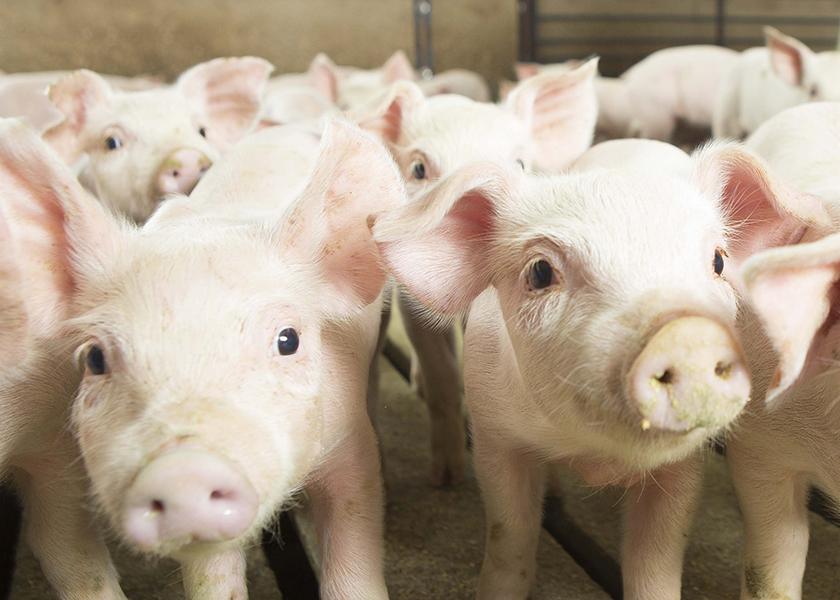SHIC Emerging Disease Focus Results in Porcine Sapovirus Diagnostic Tools

In 2019, a new variant of porcine sapovirus (PSaV) infection was identified in the U.S. on a farm reporting piglet diarrhea issues for two years. Piglet SaV infection during the lactation phase resulted in smaller pigs at weaning, losing one to two pounds, which represents a significant health and economic consequence. PSaV is included on SHIC’s Swine Viral Disease Matrix; knowing the epidemiology and having effective diagnostics for those pathogens is key to effective management.
The Swine Health Information Center (SHIC), funded by Pork Checkoff, worked with Iowa State University researchers to help understand PSaV’s role in causing disease and to develop appropriate diagnostics as part of its ongoing mission to monitor and respond to emerging swine diseases. The full study report is now available as well as a highly sensitive and specific RT-PCR for detecting porcine sapovirus (PSaV) genotype III for neonatal diarrhea investigation.
As part of the study, researchers used four independent lines of evidence – metagenomics analysis, real-time RT-PCR, histopathology, and in situ hybridization – to confirm that porcine PSaV of genogroup III as the cause of the enteritis and diarrhea on the farm. A subsequent prevalence survey of more than 500 samples comparing pigs with clinical diarrhea and clinically healthy pigs suggests that porcine SaV genotype III may play an important role in causing swine enteritis and diarrhea. Study findings provide significant insights for a better understanding of the epidemiology and pathogenicity of porcine PSaV. To the researchers’ knowledge, this is the first evidence PSaV likely serves as the sole etiological agent causing enteritis and diarrhea of piglets in the field in the U.S.
Porcine SaVs are genetically diverse and widely distributed in pig-producing countries. To date, eight genogroups of porcine SaV have been identified, and genogroup III (GIII) is the predominant type. Most of the eight genogroups of porcine SaV are circulating in the U.S. In the study, reports on detection of porcine SaVs in pigs at different ages with clinical diarrhea using next-generation sequencing and genetic characterization are included.
All seven cases in the study had porcine SaV GIII strains detected, and one pooled case was found to have a porcine SaV GVI strain IA27912-B-2018, per the final report. Sequence analysis showed that seven GIII isolates were genetically divergent and formed four different lineages on the trees of complete genome, RdRP, VP1 and VP2. In addition, these seven GIII isolates had three different deletion/insertion patterns in an identified variable region close to the three prime end of VP2. The GVI strain IA27912-B-2018 was closely related to strains previously detected in the US and Japan. A 3-nt deletion in VP1 region of GVI IA27912-B-2018 was identified. The study showed genetically divergent PSaVs of different genogroups are co-circulating in pigs in the US.
Study authors conclude future studies comparing the virulence of these different genogroups in pigs are needed to better understand this virus. Developing new diagnostic tools will also help with understanding the incidence of PSaV and its contribution to piglet diarrheatic syndromes.
More from Farm Journal's PORK:
6 Issues Driving Global Hog Prices
Air Pollution Study Contributes to False Animal Ag Narrative







